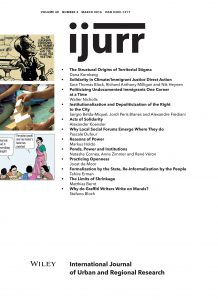Meaning in the Eye of the Beholder
 by bmckernan
by bmckernan
A recent Op-Ed in the NY Times by conservative columnist Ross Douthat on Judd Apatow’s comedy Funny People serves as a unique illustration of one of Stuart Hall’s key insights – the heterogeneity of a cultural text. In explaining the negative critical reception to the film in some circles, Douthat suggests that the movie embraces social conservative values during a time when such beliefs are no longer popular.
Stuart Hall and other Birmingham School scholars adamantly asserted that all cultural texts possess a multiplicity of possible meanings. In other words, one could not simply look at a specific cultural text to ascertain its social meaning. Instead, one must also examine how individuals and different social groups use the cultural text do gain insight into its social significance. For Hall and others, this theoretical axiom led to the profound realization that audiences often use cultural texts in creative ways, some even in stark contrast or rejection to the intentions of the cultural text’s producers.
It may be possible that a similar phenomenon is occurring within Douthat’s discussion of Funny People. Douthat describes Judd Apatow, the film’s creator, as successfully rebranding social conservatism for a new generation. Douthat uses themes from Apatow’s most recent films to illustrate his claim, noting how The 40 – Year Old Virgin endorses abstinence, Knocked Up depicts abortion negatively and Funny People places divorce in a harsh limelight.
Douthat’s description is especially interesting given the content of Apatow’s films, which usually aren’t described as conservative. Funny People, for example, includes scenes depicting drug use, nudity, premarital sex, adultery, and of course a fair amount of vulgarity. In most cases such content would not lead to praise from social conservatives. Comments by Apatow himself make this embrace even more surprising. On a recent episode of The Daily Show, Apatow claimed to have attempted to pleasure himself to the “cold, dead eyes” of conservative editor of The Weekly Standard Bill Kristol, not the type of behavior that usually will win one endearment from the social conservative crowd.
While possibly humorous, this example serves as a reminder to cultural sociologists that we cannot just assume a potential meaning of a cultural text to be universal, and it is only when we start examining how different social groups make use of a cultural text that the true complexity and creativity of the social world emerges.





1468-0491/asset/society_affiliation_image.gif?v=1&s=859caf337f44d9bf73120debe8a7ad67751a0209)
Great post about cultural texts. I have heard this idea applied to more significantly different social groups (e.g. Americans and Indians), but it is interesting to think about it applied to more similar social groups.
Keri